
What students should learn in school is at the forefront of the education reform debates taking place across the U.S. and elsewhere.
Ed-tech stakeholders for years have been touting the need for students to learn so-called “21st century skills” such as problem solving, critical thinking, and media literacy to prepare for the new global, digital economy, while others are calling for students to have strong math and science skills.
All of these skills are important—but what do educators and other school stakeholders think are the most important skills?
We recently asked our readers: “If you could choose only one, what’s the skill you’d like every student to learn?”
Perhaps surprisingly, while many readers did cite critical thinking as a skill every student needs, another skill was listed nearly twice as much as all other responses combined.
Need a hint? It’s a skill every student has needed since the days of the one-room schoolhouse: the ability to read.
Being able to read, though the most popular response, was certainly not the only one. Another skill that could be considered the most forward-thinking response is having “global empathy.”
Based on the number and quality of responses we received for each suggested skill, we’ve compiled a list of the top 10 skills our readers believe every student needs. What do you think of these responses? What skills would you add to this list? Share your thoughts in the comments section below.
According to readers, every student to be able to (in no particular order):
1. Read
“Would it not be reading? Even reading is required for math, which is very important, of course. But I have read recently of residents in poor African nations who are taught to read and are simply buoyed in other areas by their ability to read. It becomes an instant confidence builder.” —June Weis, consultant, SREB Educational Technology Cooperative
“I’d like every student to know how to read—to read deeply, and to truly understand each word. By reading, we can improve our knowledge. I speak from my own experience in studying English online. Now I want to help others to understand that.” –Cata
“If you can read, you can learn to do anything.” —Candace Kavey
“To read well. Reading is the first step to good writing. In order to learn social studies, science, and math, you need to know how to read. Reading is the gateway to all knowledge.” —Krista Bethke
2. Type
“This may sound notoriously ‘old school,’ but the one skill I often see missing is that of being able to touch-type. The speed at which one interacts with the computer is sometimes overlooked and, especially in secondary and post-secondary education, being able to type quickly is an incredible time-saver. I know that touch-screens work well and that user interfaces are changing, but interacting with a QWERTY keyboard still is an imperative.” —Tom Crawford, Tanque Verde USD, Tucson, Arizona
“If I could choose one skill that I would love students to learn, it would be the proper keyboarding techniques to ensure typing speed of at least 40 words per minute. Mastering the QWERTY keyboard helps establish confidence when working various software applications.” —Anonymous
3. Write
“The essential skill that all students need is the ability to write fluently and persuasively. This includes being able to formulate and sustain an argument by providing supporting evidence, which demonstrates each student’s ability to examine and integrate multiple perspectives/sources.” —Elizabeth Ann Sanders, Ph.D., associate professor, Baker University
“I would love to see every student develop writing as a skill. When [students write] about what they’ve learned, they have to collect their thoughts and put them into a logical sequence. They need to use content-specific language, and they need to use it correctly. They may be asked to explain how to solve a problem or why they would solve it in a certain way. This forces them to consider and discard various ideas, selecting the best one as a vehicle for explaining their thinking. They learn to write an introduction and then to wrap up their thoughts with a conclusion. They learn to sequence carefully, not leaving out critical steps in the process so others can replicate their work. It gives them an opportunity to really think and then to reflect that thinking through their writing. No matter what career they choose, students will need to use logical thinking. In this day of many people applying for the same job, being able to stand out on paper may just be the skill that gets them through the door for that first interview.” —Myra J. Collins, math curriculum consultant, Kirksville, Missouri
4. Communicate effectively, and with respect
“Critical thinking in the social arena.” —Ed McManis, head of school, Sterne School, San Francisco, California
“The skill I would like every student to learn would be to honor ‘dignity,’ since this is something we all have, can’t be taken away, but it is the very essence of caring.” —Diane B. Sheehan
“My vote would go to effective communication in situations of conflict. Nothing taught in school could be more important! Witness our government today!” —Sandra M. Hurst, founding director, Upattinas School, Glenmoore, Pennsylvania
“The single most important skill for every student to learn is how to communicate effectively. This, of course, begins with understanding and using simple words, gestures, and expressions and expands into written and technology-based communication using increasingly complex thought processes. Effective communication is the key to all learning and to compatible interaction with others.” —Dr. Lynda R. Ludy, grade 2 teacher, Detroit Country Day School, Professor Emerita of Education, Alma College, Michigan
“I would like to see all my students come into my courses with a consistently good ability to clearly, concisely, and understandably present and explain their own thoughts, arguments, and discoveries. Without this, I find myself needing to devote much of my time and energy trying to make assumptions (a bad thing) about the actual meaning, intention, and learning of my students in the areas they are trying to describe (in papers, presentations, and in-class responses). This situation is aggravated by second language learners and varied levels of communication backgrounds.” —Gary Berosik, lead software engineer, Thomson Reuters R&D
5. Question
“The one skill I’d choose is the ability to ask questions. A student’s ability to formulate questions encompasses and assumes a wide range of other skills: connecting with information, challenging preconceptions, evaluating validity, imagining other options, and taking ownership of his or her own learning.” —Linda Engelhard
“I would like to see every student learn to say: ‘I don’t understand this. Could you please explain it again?’” —Barbara A. Jimerson, Title VII director, Gowanda School District, Gowanda, New York
“The skill I think students should learn is asking good questions. This is a component of critical thinking that allows students to begin formulating their own ideas.” —Elly Faden, educational technology consultant
“To be unafraid to ask the questions that need to be posed to those in authority, and how to know which questions need to be asked. A bonus would be to have the skills to analyze the answers provided.” —Carl E. Heltzel, Ph.D., Department of Chemistry, College of Engineering and Science, Clemson University
6. Be resourceful
“To be independently resourceful. Students should learn how to find and use resources around them to assist in their learning. Finding things out on your own boosts your learning and makes it stick!” —Gabrielle Schoppa
“Resourcefulness: the knowledge of where to find the answers, ideas, information, etc.” —Kari Boyd-Peak, National Interagency Fire Center, External Affairs, BLM Fire and Aviation
“How to locate and verify information online. I teach high school special ed, where students believe anything they find in print. That is dangerous.” —Sue Kimmet, Sunburst Public Schools, Sunburst, Montana
“The one skill I want my students to walk away with is the ability to think critically to be able to find answers to whatever they need or want to know.” —Carrie Guarino, Montague Elementary School, Montague, California
“How to research information for any topic/item that they need information on. I strongly believe that knowing how to find the right information is more important than memorizing information that very likely changes rapidly.” —John Hough, technology coordinator, Shelby Public School District #14
7. Be accountable
“The skill I would like for students to learn is accountability/responsibility. Lifelong learners need to know their own capacity and what is out there to find and learn. Accountability/responsibility allows students to be lifelong learners.” —Don Lyon, assistant principal, Sturgis Brown High School, Sturgis, South Dakota
“Respect and responsibility.” —Robert J. Saielli, Young People’s Press, Inc., San Diego, California
8. Know how to learn
“The most important skill for everyone to learn is how to learn! For the formal education ahead of them; for the informal learning they truly seek to engage in for fun, enjoyment, and personal satisfaction in added capabilities (and the intrinsic motivation generated for learning in general); and of course the lifelong learning so important to a successful and satisfying career and personal life.” —John Bennett, emeritus associate dean/professor, University of Connecticut
“The most important thing we can teach our children is how to learn on their own. Like the old adage, ‘If you feed someone they eat one meal, if you teach them to fish they can eat for life.’ Our students will need to know things during their lifetime that we can’t even imagine right now. If we teach them how to learn, they will always have the tools/skills to teach themselves.” —Sydney Gilbey, Windham Middle School
“After 40 years in a primary classroom, I wanted my students to think for themselves. The skill I most wanted students to learn was to assume some of the responsibility for their own learning. I hated it when a child would complete an assignment or task that they were given and said, ‘I’m done!’ As if it was up to me to tell them what to do next. It took a lot of time early in the year for students to know that there were any number of things they could do next. Read a book, write a story or letter, practice their math flash cards, make a list of what they wanted for Christmas or what they would do after school, investigate with a math manipulative or a science task, etc.” —Lucy Hahn
“No matter what excellent technology, creative lesson plans, or other pedagogical methods they encounter, students must learn how to learn; to do this, they must understand that learning means much more than entering a search term and clicking on a website followed by speed reading and/or copying and pasting information. Finding information is one important component of learning, but it is ineffective if students do not understand why the information is significant, how it should be appropriately and ethically used, and to what extent the information is relevant, credible, timely, etc. Students are more than ready to question data or conclusions, but often lack of focused study has rendered them unready to pursue such questions to well-reasoned conclusions.” —Deborah S. DeCiantis, Ph.D., associate professor of English, North Greenville University
9. Think critically
“I tell my 5th grade students every year that my goal is to get them to think like a scientist—evidence-based rational thought processing.” —Malinda Sommers, Meadowlawn, Perkins School District, Ohio
“The one skill I would like every student to embrace and develop is the ability to learn things by trial and error, or in other words, how to learn from one’s own mistakes. Too many times in my teaching career I have seen students paralyzed by the fear of getting something wrong, when in reality, getting things wrong is one of the best, if not the best way to learn anything! Rather than shy away from possible errors, students should be taught to dig into their mistakes and figure out why it even is a mistake.” —Joe Iwanski, Dwight-Englewood School
“Critical decision-making skills. Without good decision-making skills, students can’t analyze information or what steps to take to achieve personal and academic goals. They need to understand that every decision has consequences–good or bad.” —Tara Funk
“It would be the ability to analyze a problem, to be able to deal with an unfamiliar situation, and to be able to reason his/her way to a credible (not necessarily right) solution.” —Don Smith, Albuquerque, New Mexico
“Students need critical thinking skills; they need to be able to apply knowledge and be problem solvers. If they can think outside the box and learn to feel comfortable with their own creativity, then we might have helped our students learn to be their own teachers.” —Margaret Ross
10. Be happy
“The skill I think students need most is how to be a happy, caring person. Although it isn’t directly taught in school, if the focus was on character education at home and at school, we would see a decrease of all sorts of negative things in our world and an increase in the positive. It amazes me today how much the students’ personal lives interfere with their learning. How can a student learn who is hungry? Scared? Tired? Anxious?” —Sherril Studley
- #4: 25 education trends for 2018 - December 26, 2018
- Video of the Week: Dealing with digital distraction in the classroom - February 23, 2018
- Secrets from the library lines: 5 ways schools can boost digital engagement - January 2, 2018




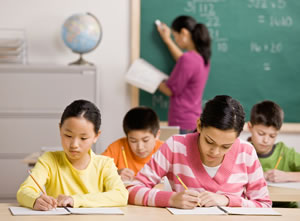
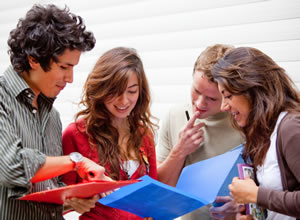
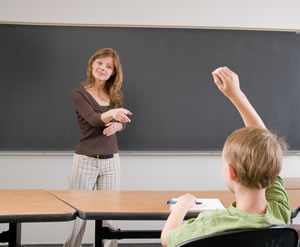


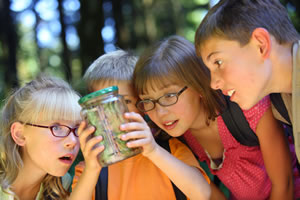
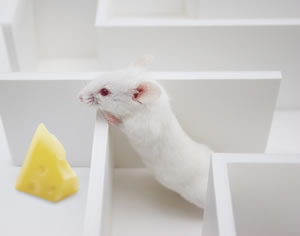
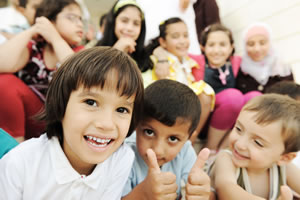

Comments are closed.